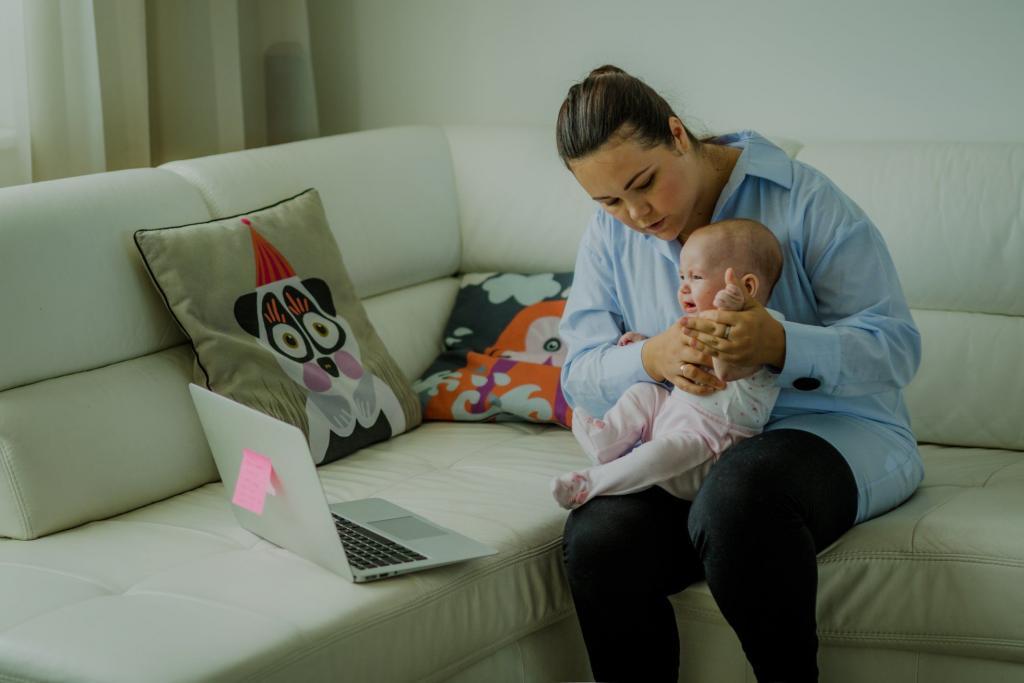A new medical service suited for expats, minudoc.ee, has launched in Estonia; in addition to English-speaking family physician video consultations, it has also started home visits by an English-speaking nurse and launched the online prescription extension service.
This is a paid content.
The multilingual portal minudoc.ee launched in 2018 with a telemedical service that ensures a convenient doctor’s appointment is never more than a video call away. That service quickly became popular among the Tallinn-based expats, now forming one third of the minudoc.ee clients.
Minudoc.ee has now launched a new service, providing a relief for the Estonian medical emergency resources along the way. The new service allows people to invite a family nurse for a home visit directly through the minudoc.ee virtual clinic and without contacting a family physician beforehand, and on top of that, the service is also available on workday evenings and weekends.
Improving the availability of family home visits
Year by year, the number of emergency calls has steadily increased. According to the Tallinn Emergency Medical Services’ data, in the past three years, they have taken nearly 10,000 more trips than before in Tallinn alone. In almost 50% of the cases, helping the patient at their own home was enough. “A significant portion of emergency calls are related to issues that can be solved by family physicians or family nurses, as well as parents asking their children to be examined or have their allergy symptoms relieved,” Raul Adlas, the chief of the Tallinn EMS, said.
Here is where the services of minudoc.ee come handy. Currently a large portion of EMS calls concern health problems that can be solved by a family doctor or nurse. Minudoc.ee helps direct those people with non-urgent cases back to primary care – family doctors and nurses. “We believe improving the availability of family home visits, we keep emergency medics for more critical and severe health problems. As a result, we created a separate service for a family nurse home visits,” Tarmo Pihl, the CEO of minudoc.ee, noted.

Another source of local emergency medical services overload comes from expats living in Estonia, who through employment should have access to the Estonian health-care system. Yet, the expats are having difficulties with accessing primary health care due to the lack of English-speaking doctors and other various reasons. Hence, many end up seeking medical care from the EMS, despite the health issue being not that serious.
Multilingual family nurses
Minudoc.ee makes it easier for expats. Its service provides family nurses who speak besides Estonian also Russian, English and Finnish, thus providing access to health care for non-Estonian speakers.
And then there’s the flexibility. Minudoc.ee’s service makes it available to call a family nurse to your home even on weekday evenings and weekends. A nurse can be called to visit a home on the same day and without prior consultation with a family physician, thus saving the time of both the patient and the physician. Minudoc.ee family nurses have been approved by the Estonian Health Board and are mediated by the platform. All family nurses are qualified to perform the usual examination as well as other procedures.
During the home visit by the family nurse, it’s possible to take different samples, perform rapid tests for evaluating inflammation indicators, test blood pressure and blood sugar, examine ears, throat and breathing, evaluate rashes or give the patient and their family further instructions. Young mothers can ask for advice on various illnesses and nursing; if necessary, the family nurse can consult with a family physician during the home visit. The home visit will be recorded in the patient’s Patient Portal so it can be accessed by both the patient and their family physician.
Welcomed by the emergency services
“Being able to call a family nurse for a home visit during weekday evenings or weekends instead of calling the ambulance saves a lot of resources of the Estonian health care system. Minudoc.ee home visit might not be free of charge as is ambulance, but it is worth remembering that when the ambulance is on its way to deal with a trivial case, someone in serious need of help might get left out,” Pihl said.

The idea of a home visit service is also welcomed by Adlas. “This new service on the market is certainly welcome. Minudoc.ee can alleviate the complexity of home visits with good organisation. Whether this service also relieves the shortage of resources in emergency trips can be evaluated in a few years’ time, but until then it’s an important move towards changing people’s mindset and direct the patient to seek alternatives,” Adlas said.
Initially, the home visit service has been launched as a pilot project in Tallinn and its vicinity (Laagri, Peetri, Viimsi). If it proves successful, it will be extended to other major Estonian towns with a corresponding service.
Online prescription service
Minudoc also offers an online prescription extension service. Prescriptions can be extended online in minutes every day, including weekends and public holidays until 10pm. It’s important to note that the extension of scrips is in accordance with the Estonian Health Insurance Act and the relevant regulation issued by the country’s ministry of social affairs.
When you wish to extend your prescription, Minudoc’s doctor will review your medical history and once extended, it will be digitally saved in your medical records. The doctor may contact you within 15 minutes – in exceptional cases where further information is needed.

If nine months have passed since the last prescription was issued, or if you have used the medicine irregularly, you should make an appointment for a video consultation with your family doctor, gynaecologist or midwife – after the consultation, your doctor can issue a new prescription. Here, too, minudoc.ee GPs can help.
The doctor may refuse to extend the prescription, in which case no fee will be charged.
The prescriptions for medicines for hypertension and diabetes, as well as for migraine drugs and contraceptives, are most often extended.
A comment from family nurse Lilli Gross:
Medical centres (family physician centres) are the first and best places to diagnose and treat patients. It is ideal that all patients manage to come to a medical centre where a trained specialist can run necessary tests and conduct procedures. All this is to insure a correct diagnosis and proper treatment plans. Unfortunately, in some cases it is not possible for a patient to drive up to a medical centre, and this is when home visits are required.
The nature of home visits can be very different, sometimes it means just a general physical check-up, following with concerning health-related advice. In some cases, the home visit needs a follow-up visit to a medical centre or even to a hospital. The need for a home visit may be caused by timing and urgency – medical centres are usually closed on weekends and public holidays. The urgency may also come from transportation issues of situations where the patient is simply not capable of leaving the house. This is the moment when patient has to decide whether to turn to emergency care or call a family nurse for a home visit instead.
A nurse’s home visit is reasonable only if basic examination and simple tests can ensure a proper diagnose and treatment. If necessary, the nurse can consult with a doctor remotely and come up with a treatment plan together.
One example would be a child who has been home ill for a few days already and needs additional physical check-up in order to make adjustments to the treatment. Sometimes it is just not possible to drive up to an assigned family physician as the doctor may be too far away or is not available at the time. Not only will this help relieve the emergency room workload, but it will also provide fast and personal medical care that will bring faster recovery and calm down the parents.
And it doesn’t have to be concerning cases, nor does it have to be about an illness. Family nurses are also qualified to examine cuts, bruises or similar injuries. Quite often, such injuries in fact don’t require a visit to the ER, instead can be examined and fixed by a family nurse. And again, if such an incident occurs during a time when it is not possible to drive up to a medical centre, one can call a family nurse for a visit instead.
Let’s not forget that our health care at the moment is struggling with ERs being overloaded with work. Having more alternatives makes it easier to address health concerns according to their severity. Most health issues can be solved at medical centres; however, if this is not an option, it is important to consider whether going to the ER is necessary or the issue can be fixed by a home visit. That visit is recorded in patient’s medical history just like any other doctor’s appointment and can be later accessed if necessary.
This is a paid content. Images courtesy of Minudoc.

